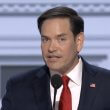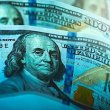The social media giant Twitter Inc. will be sold for $44 billion to Tesla Motors and SpaceX CEO Elon Musk it was announced Monday after Musk worked hard to convince many of the social media company's shareholders. The details of the agreement and its terms include an all-cash transaction that will transfer the popular social media platform to Musk who has indicated he has several new ideas to implement including working to bring back free speech to the site.
In the past few years, Twitter, like many other major social media companies that were once neutral and nonpolitical, is now deeply embedded in the political world, going insofar to block President Donald Trump’s account and adhere to demands by Democratic politicians in Congress. Many Conservative politicians, commentators, and companies have had stories, videos, and posts blocked by Twitter because of tight guidelines and regulations influenced by activists and employees.
Twitter has even gone as far as to either temporarily or fully block, remove, and warn individuals that certain messages, stories, and posts are sensitive, false, or hateful. Conservatives and even some liberals have called for Twitter's special privileges to be revoked by the government and call for the regulation that makes Twitter a free speech platform where everyone can post whatever they want without facing any censorship.
“Companies like Google and Facebook that connect people online have generated unprecedented sums of wealth and power for just a handful of enterprises,” Mike Davis, founder and president of the Internet Accountability Project said.
Davis, who runs the IAP, a Conservative grassroots advocacy organization, further explains that not only have big social media platforms like Twitter transformed the lives and communities of ordinary Americans, but they have “shuttered local papers across America and funneled their wealth to aristocrats on the coasts.”
Davis and his organization have called on and supported members of Congress like Republican Senator Ted Cruz to rein in Big Tech and support “pro-competition and Bipartisan legislation” that would allow various news outlets to “negotiate with Google and Facebook to secure fair compensation for local journalism.” According to Davis, bills on social media outlet must preserve “diverse points of view, especially conservative ones, against the excess of Big Tech.”
For the past months, Musk has become relevant in the political sphere by commenting on various economic and social issues on outlets, receiving praise from Conservatives and Liberals alike, while receiving public hate messages from various mainstream media outlets and activists on the political left., including Bill Gates.
Musk however, has presented himself as politically moderate, and like many other executives and entrepreneurs, refuses to cave to the pressure of the “woke” mob.
The mob has made its grievances known about the purchase of Twitter by musk. On the social media platform itself, many groups, activists, and politicians have posted tweets vowing to leave the social media site entirely should anything be finalized.
Many of these users have pressured Twitter to act against posts and users they deem spreading "hate speech" or speech they do not like. With Musk purchasing the social media company, many of these users will not be able to influence Twitter's policies and prevent the possibility of reinstating former President Donald Trump's account.
Throughout the negotiations between Twitter and Musk, the Tesla CEO has been hard at work dealing with the various concerns of shareholders.
In the past few weeks, Musk has been meeting with Twitter shareholders to gain support for his bid. According to reports, the social media's shareholders reached out to executives after Musk outlined a financial plan for his bid, urging the company not to let the opportunity slip away.
The company and its shareholders accepted what Musk presented as his “best and final” offer.
Twitter itself has adopted a shareholder rights plan or “poison pill” after Musk made his offer preventing him from raising his nine percent stake in Twitter above 15 percent without negotiating a deal with the social media’s board.
Long-term Twitter shareholders with index funds who hold a large chunk of the company’s shares had higher price expectations from Musk, with some arguing that the price tag does not come close to the inherent value of Twitter.










